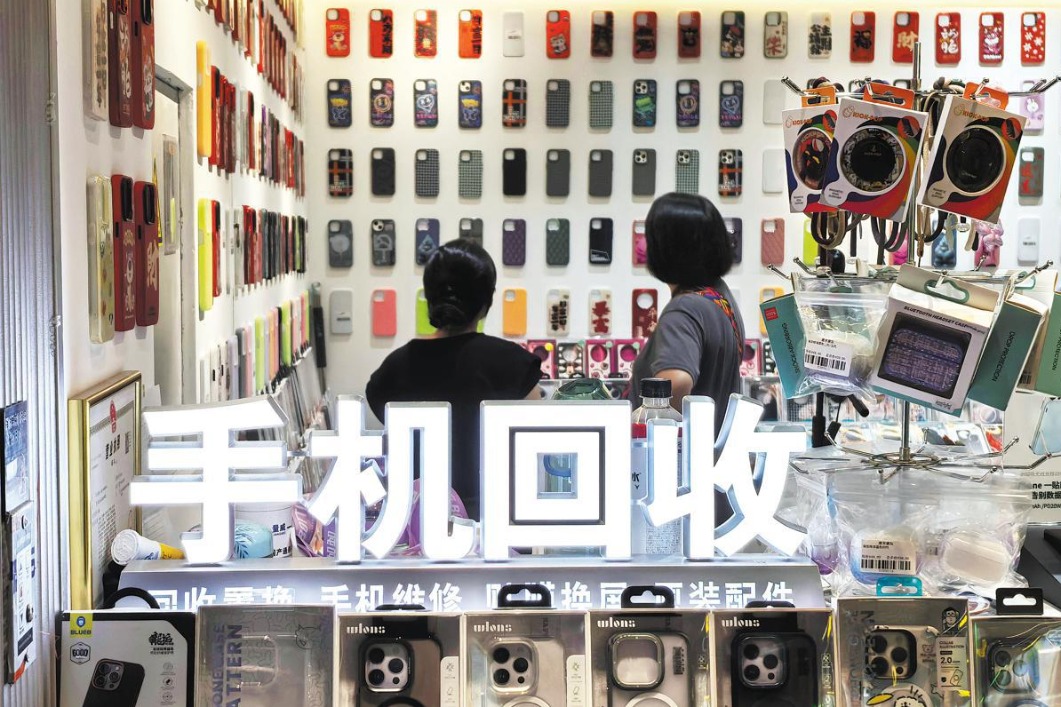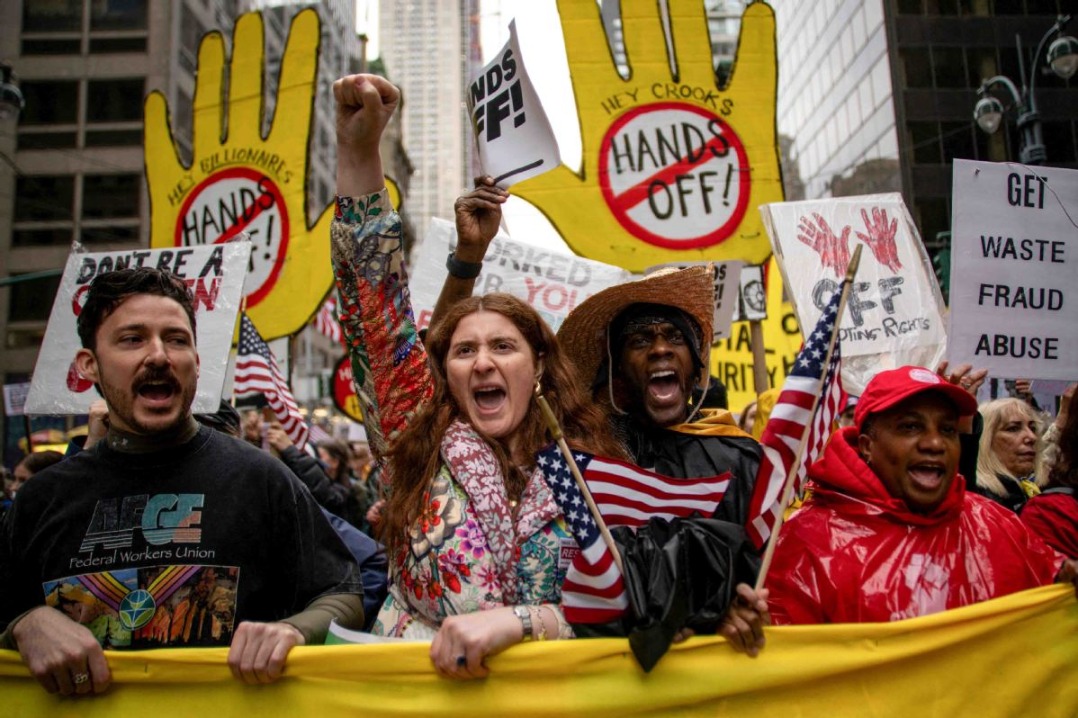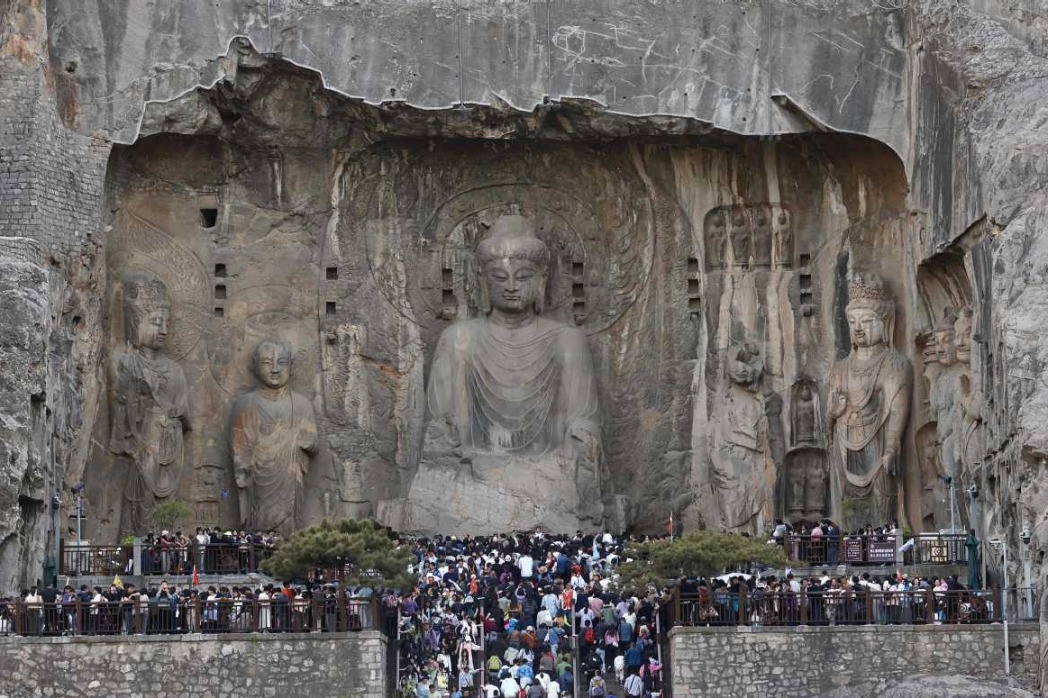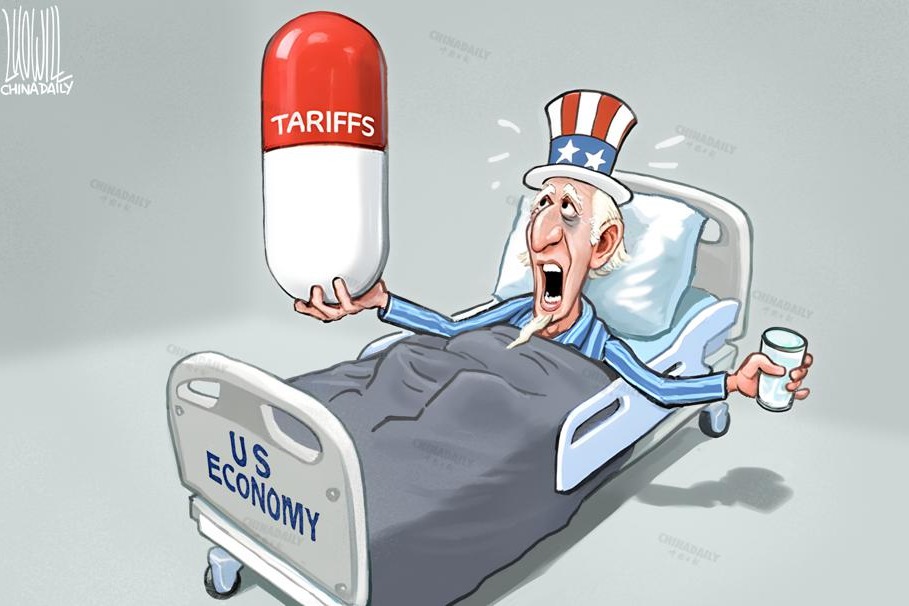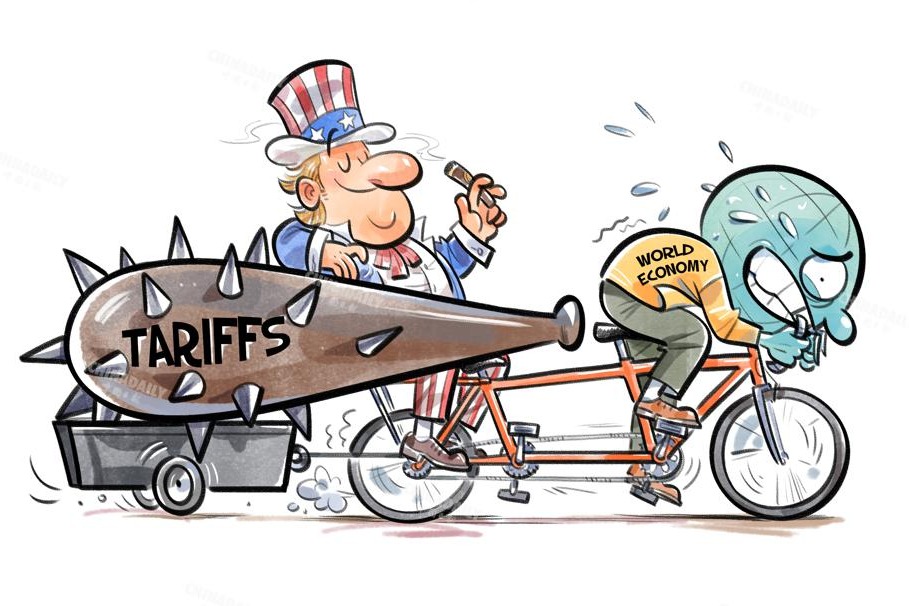Path to prosperity for US and the world lies in cooperation, not confrontation: China Daily editorial

Turning a deaf ear to the "hands off" cries of protesters not far from his golf course in West Palm Beach, Florida, where he played golf over the weekend, the US president said foreign governments would have to pay "a lot of money" to get tariff relief.
Making the remarks to reporters aboard Air Force One, the US leader said he was not concerned about market losses, which have already wiped out nearly $6 trillion in value last week since the announcement of the so-called "reciprocal tariffs".
In a bizarre move to try and help the US to shirk its responsibility for causing the market losses with its coercive tariff policy, US Treasury Secretary Scott Bessent blamed the stock market plunge on China's DeepSeek large language models in an interview aired on Saturday. "For everyone who thinks these market declines are all based on the president's economic policies, I can tell you that this market decline started with the Chinese AI announcement of DeepSeek," the US treasury chief disingenuously said.
That comment and the US president's own giveaway about "we have to solve our trade deficit with China" point to why even penguins aren't immune to the United States' aggressive protectionism, as the allure of tariffs and "America First" policies are a siren song to the US president and his administration even as they destabilize markets, push the vulnerable over the financial cliff and alienate allies.
Which is why the US administration is sticking to its tariff guns, seemingly believing that the damage done by its bullying protectionism is worth jeopardizing a system that has long been rigged to favor the prosperity of the US. Whether the tariffs are intended to manipulate interest rates or impose sweeping trade barriers to break industry and supply chains and put the brake on China's development, the current policymaking circle of the incumbent administration is trying to reinforce the "small yards with high fences" approach handed down from its predecessor in a more aggressive way by targeting the rest of the world to get at China.
Yes challenges exist for the US, as they do for other countries. The global economy stands at a crossroad. A new industrial revolution — driven by AI, quantum computing, and green energy — is reshaping competition. At the same time, climate change and other common threats demand collective action. In this context, the zero-sum thinking that prevails in Washington is not just outdated; it is dangerous. As China's leadership has reiterated, the trade issues should be addressed not by shrinking the pie through tariffs or decoupling but by expanding it through dialogue and joint innovation.
Beijing's push to deepen reforms — opening sectors such as finance, biomanufacturing, and green technology — signals its readiness to collaborate. Even US businesses, despite the political headwinds, continue to invest in China, recognizing its driving role in global supply chains and consumer markets. Beijing's commitment to "institutional opening-up" — aligning with international standards in areas such as intellectual property and digital trade — reflects a pragmatic recognition that integration, not isolation, secures long-term growth.
China therefore remains committed to upholding multilateralism and is willing to work with all countries, including the US, to promote free trade and achieve mutual benefit and win-win results in an increasingly open, cooperative and consultative way.
For decades, China-US economic and trade cooperation has been a cornerstone of global prosperity. US companies have invested in China's growth, accessing its vast market and labor resources, while Chinese exports have helped sustain low inflation and consumer demand in the US. The cooperation based on their economies' structural complementarity has created jobs, spurred innovation, and lifted living standards in both nations. The fruits of this partnership — worth trillions of dollars in bilateral trade — must be cherished, not weaponized. This means forging agreements on emerging technologies, coordinating climate investments, and reforming multilateral institutions such as the World Trade Organization. It means rejecting the false choice between "winning" and "losing" and embracing mutual gains. Tariffs and financial repression are blunt tools. They offer political theater but will ultimately impoverish both nations and the rest of the world.
History offers a clear lesson: From the normalization of diplomatic ties in the 1970s to the economic symbiosis that fueled globalization, cooperation between China and the US has lifted millions out of poverty, driven technological innovation and stabilized global markets. Yet today, as geopolitical tensions rise, the US risks repeating the same mistakes of the past. No matter how emotionally resonant they are, tariffs risk catastrophic fallout. History offers a clear warning in the Smoot-Hawley tariffs of the 1930s, which deepened the Great Depression and fueled global instability.

















